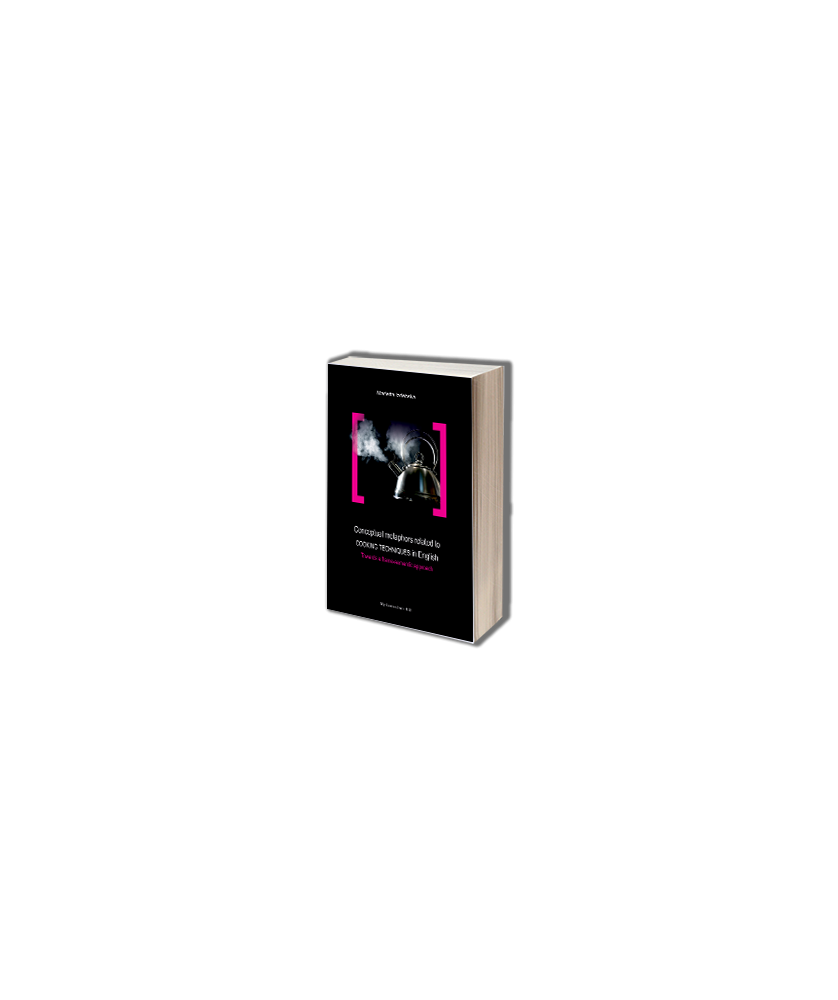


Marietta Izdebska
ISBN: 978-83-8061-761-2
Stron: 224
Format: B5
Rok wydania: 2019
TABLE OF CONTENTS
Style conventions
List of abbreviations
Acknowledgements
Preface
Chapter 1
From the traditional to the cognitive account of metaphor
1.1 Introduction
1.2 The traditional view of metaphor
1.2.1 Aristotle's conception of metaphor
1.2.2 Deviation in metaphor studies
1.2.3 Substitution and comparison views
1.2.4 Problems with the traditional view of metaphor
1.3 Interaction Theory as a shift from the traditional to the cognitive view of metaphor
1.3.1 Richards' (1936) Interaction Theory
1.3.2 Black's (1962) Interaction Theory
1.3.3 Problems with the Interaction Theory
1.4 A Cognitive view of metaphor
1.4.1 Glucksberg and Keysar's (1993) categorisation view of metaphor
1.4.2 Fauconnier and Turner's (2002) Blending Theory
1.5 Concluding remarks
Chapter 2
The theoretical framework of the Conceptual Metaphor Theory
2.1 Introduction
2.2 The main tenets of the Conceptual Metaphor Theory
2.2.1 Metaphor as a conceptual phenomenon
2.2.2 Metaphorical mappings
2.2.3 Metaphorical entailments and systematicity
2.2.4 Highlighting and hiding
2.2.5 The Invariance Principle
2.2.6 A classification of conceptual metaphors
2.2.6.1 The conventionality of metaphor
2.2.6.2 The motivation of metaphors
2.2.6.2.1 Correlations in experience
2.2.6.2.2 Perceived structural similarities
2.2.6.2.3 Perceived structural similarities induced by basic metaphors
2.2.6.2.4 Source as the root of the target
2.3 Criticism of the Conceptual Metaphor Theory
2.3.1 Conceptual Metaphor Theory as an isolating, top-down approach
2.3.2 Conceptual Metaphor Theory based on the dichotomy and monosemy principles
2.3.2.1 The source/target dichotomy
2.3.2.2 The monosemy constraint
2.4 Summary and concluding remarks
Chapter 3
Towards a frame-semantic, lexico-grammatical approach to conceptual metaphors
3.1 Introduction
3.2 Fillmore's (1975, 1976, 1977, 1982, 1985) theory of Frame Semantics
3.2.1 The notion of a frame
3.2.2 Major principles of Frame Semantics
3.2.3 The FrameNet project
3.3 The application of the frame-semantic approach to the study of metaphors
3.4 Towards a lexico-grammatical approach to conceptual metaphors
3.5 Metaphor in Frame Semantics and FrameNet: some challenges
3.6 Summary
Chapter 4
The analysis of conceptual metaphors related to cooking techniques in English: a frame-semantic and lexico-grammatical approach
4.1 Introduction
4.2 Methodology
4.2.1 Data retrieval
4.2.2 Identification of metaphorical linguistic expressions
4.2.3 A lexico-grammatical analysis
4.2.4 A conceptual-level analysis
4.3 Ten case studies
4.3.1 Case study 1: simmer
4.3.2 Case study 2: grate
4.3.3 Case study 3: boil
4.3.4 Case study 4: grill
4.3.5 Case study 5: cook
4.3.6 Case study 6: stir
4.3.7 Case study 7: roast
4.3.8 Case study 8: stew
4.3.9 Case study 9: sift
4.3.10 Case study 10: boil down
4.4 Concluding remarks
Conclusion
References
Appendix 1
Appendix 2
Polish summary